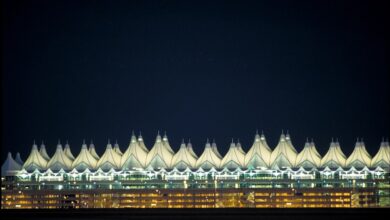Lebanon’s army to redeploy to south as ceasefire takes hold – DW – 11/27/2024

November 27, 2024
Europe reacts to ceasefire agreement
European leaders welcomed the ceasefire deal between Israel and Hezbollah, which came into effect on Wednesday.
German Foreign Minister Annalena Baerbock hailed the pause in fighting as “a ray of hope for the entire region.”
“People on both sides of the border want to live in genuine and lasting security,” Baerbock said, calling the deal “a success for diplomacy.”
EU chief Ursula von der Leyen said it was “very encouraging news,” adding that it would increase Lebanon’s “internal security and stability.”
Von der Leyen also said that the ceasefire announcement was welcome news “first and foremost for the Lebanese and Israeli people affected by the fighting.”
“Lebanon will have an opportunity to increase internal security and stability thanks to Hezbollah’s reduced influence,” she added.
French President Emmanuel Macron said in a joint statement with US President Joe Biden, ahead of the truce coming into force, that the deal would also “secure Israel from the threat of Hezbollah and other terrorist organizations operating from Lebanon.”
UK Prime Minister Keir Starmer praised a “long overdue” ceasefire that would “provide some measure of relief to the civilian populations” of both Israel and Lebanon.
Starmer called for the ceasefire to lead to “a lasting political solution in Lebanon” and vowed to be at the “forefront of efforts to break the ongoing cycle of violence in pursuit of a long-term, sustainable peace in the Middle East.”
https://p.dw.com/p/4nTLX
November 27, 2024
Lebanon’s army prepares to deploy in the south
The Lebanese army said it was “taking necessary measures” to deploy its forces in southern Lebanon, hours after a ceasefire deal between Israel and Hezbollah took effect.
The deal, brokered by the US and France, came into force at 4 a.m. local time (0200 GMT).
“With the ceasefire coming into effect, the army is taking the necessary measures to complete its deployment in the south,” it said.
The Lebanese military also called on residents displaced from their homes not to return to “front-line villages and towns” until Israeli forces withdraw.
Over a million people have been displaced by Israel’s bombing and ground invasion in Lebanon, a country with a total population of nearly 5.4 million.
Some 46,500 people were forced to leave their homes in northern Israel after the start of hostilities with Hezbollah in October 2023. Israel’s government has said that the possibility of their return is a major war aimof its military operations in Lebanon.
https://p.dw.com/p/4nT9X
November 27, 2024
What’s in the ceasefire deal?
A ceasefire deal between Israel and the Hezbollah militant group in Lebanon came into effect at 4 a.m. local time (0200 GMT) on Wednesday.
Under the terms of the truce, Israel is to withdraw its forces from Lebanon over the next 60 days.
Meanwhile, Hezbollah would be required to move its forces north of the Litani River, some 30 kilometers (20 miles) north of the Israeli-Lebanese border.
The Lebanese army and the UN peacekeeping force UNIFIL are to secure the border area. The US and France are to help monitor the ceasefire alongside UNIFIL, Lebanon and Israel.
Israel and Hezbollah have traded fire since October 8, 2023, a day after Palestinian militant group Hamas launched attacks on southern Israel.
Hezbollah said its cross-border strikes against Israel were in support of Hamas amid Israel’s offensive in the Gaza Strip.
In September, Israel stepped up its bombing campaign in Lebanon and launched a ground operation in the south of the country in order to push back Hezbollah militants.
sdi/nm (AP, Reuters, AFP, dpa)




